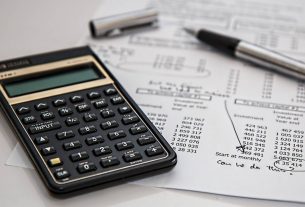Depending on how old you are, the value of your home and the area where you live, keeping your mortgage might or might not be a good move.
The “Cloud of Debt”
A lot of people hate the idea of any debt hanging over their head and are eager to pay it off early. There are a number of pros and cons to this decision.
On the one hand, you will be free from the monthly payment, interest, mortgage insurance, and all of the other big and small charges involved in having a mortgage. On the other hand, you could be required to pay penalties and lose your homeowner’s tax credit.
The Pros of Paying It Off
– Fewer monthly bills
– More cash in hand and able to save more money each month
– Peace of mind
– Owning the home outright, which means you can sell it any time you like and move if you wish
– Being able to pay cash for a new house, which will save a great deal in fees and closing costs
– If you are near retirement, it’s better to pay it off rather than invest in more stocks or bonds.
– Lower monthly expenses mean less drawdown on your retirement accounts
– The value of the home and location means you don’t get a huge tax benefit. Run the numbers carefully to see if it is better to pay off or keep the mortgage.
– Fluctuating interest – the interest rate is low at the moment but could climb. Paying it off means not having to worry about being stuck with unexpected higher payments.
The Disadvantages of Paying Off Your Mortgage
– If there will be high penalties and fees involved
– If paying it off means sacrificing a large tax benefit. Run the numbers based on your home and location to see what makes sense.
– Credit-worthiness; your credit score can go higher and remain high if you pay your debts regularly.
– Taking advantage of low-interest rates – If you got good terms on your mortgage, you will be borrowing at a much lower rate than other forms of loan, which means if you invest your remaining money wisely after your monthly mortgage is paid, you can afford to pay for cars and so on.
– Protection against inflation – If you get a fixed-rate mortgage, you will have a really good deal from the bank that will keep your monthly expenses fixed for your accommodation for the next 20 to 30 years, as compared with rents going up all the time.
– Tax advantages if you are retired – If your income is low, then your mortgage interest deduction and property tax deductions will significantly reduce your taxable income.
– Not staying in the house – If you plan to move as soon as you pay it off, this is not a good deal, especially if you have to pay penalties to do so.
– If you have trouble controlling your spending – It might be great to be debt-free and have lower monthly expenses, but if you are going to fritter away that cash rather than invest it, it might be better to keep your mortgage for the full amount of time.
– Damaging your IRA – If you are taking a lump sum from your IRA to pay it off, the interest and fees, and loss of income from the removal of the lump sum will usually make this a costly error best avoided.
Use these tips and your current situation to help you decide whether to pay off your mortgage.





